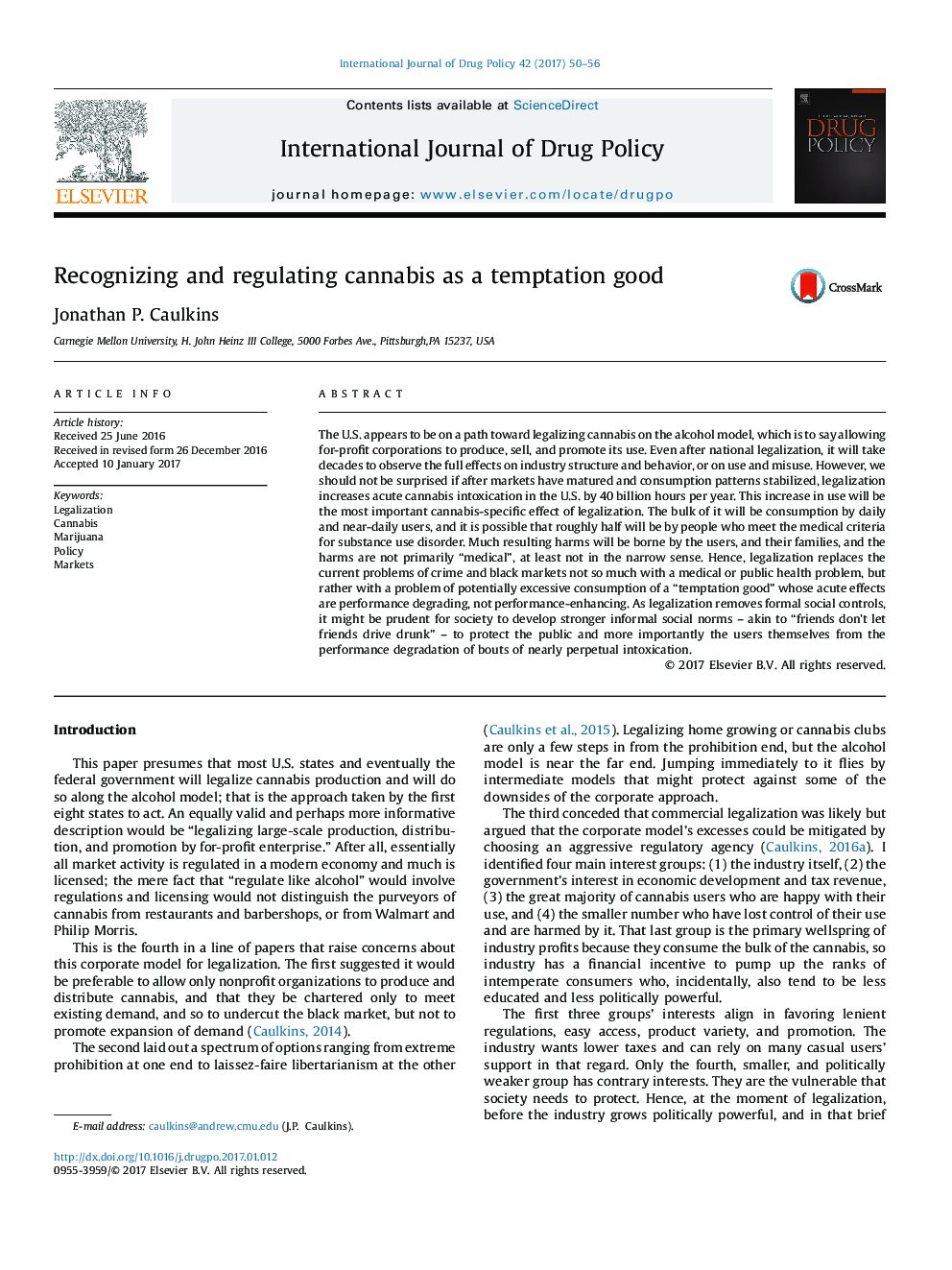| کد مقاله | کد نشریه | سال انتشار | مقاله انگلیسی | نسخه تمام متن |
|---|---|---|---|---|
| 5120778 | 1486263 | 2017 | 7 صفحه PDF | دانلود رایگان |
The U.S. appears to be on a path toward legalizing cannabis on the alcohol model, which is to say allowing for-profit corporations to produce, sell, and promote its use. Even after national legalization, it will take decades to observe the full effects on industry structure and behavior, or on use and misuse. However, we should not be surprised if after markets have matured and consumption patterns stabilized, legalization increases acute cannabis intoxication in the U.S. by 40 billion hours per year. This increase in use will be the most important cannabis-specific effect of legalization. The bulk of it will be consumption by daily and near-daily users, and it is possible that roughly half will be by people who meet the medical criteria for substance use disorder. Much resulting harms will be borne by the users, and their families, and the harms are not primarily “medical”, at least not in the narrow sense. Hence, legalization replaces the current problems of crime and black markets not so much with a medical or public health problem, but rather with a problem of potentially excessive consumption of a “temptation good” whose acute effects are performance degrading, not performance-enhancing. As legalization removes formal social controls, it might be prudent for society to develop stronger informal social norms - akin to “friends don't let friends drive drunk” - to protect the public and more importantly the users themselves from the performance degradation of bouts of nearly perpetual intoxication.
Journal: International Journal of Drug Policy - Volume 42, April 2017, Pages 50-56
